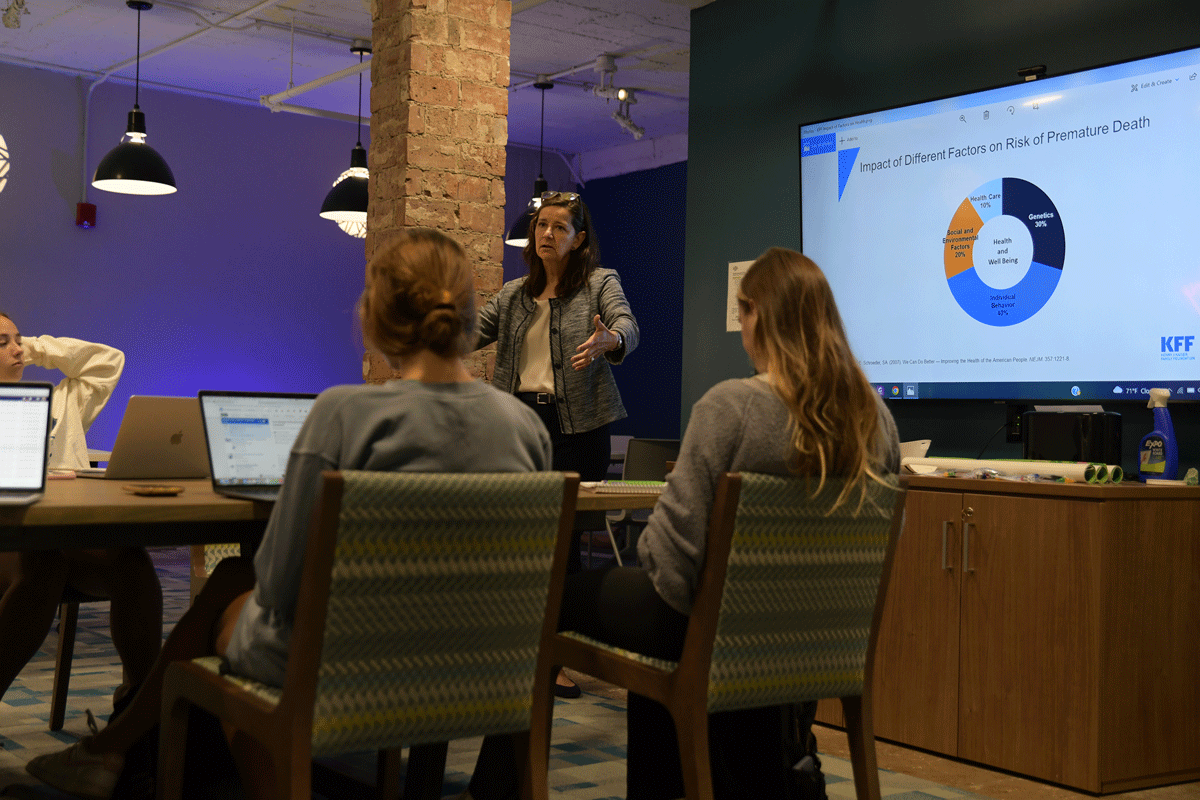Community health possibilities
Erin Santella chose community health for the possibilities it represents.
“With community health, you can take part in a wide range of opportunities to benefit the people around you,” she said.

The concentration, in the School of Education and Health Sciences’ sport and wellness major, prepares students interested in health-related fields outside patient care. Graduates can work in schools, public health agencies, nonprofit health organizations, workplace health promotion programs and in many other areas.
“Health doesn’t just exist in clinical care,” said Jessica Salem, executive director for the Center for Health Equity at Dayton Children's Hospital and UD alumna. “So much of a person’s health is driven by where you live, work and play. There’s a need to understand what mechanisms in the community have an impact on health, and prepare people to work outside the walls of hospitals and typical healthcare settings to improve health.”
A key to the success of the program is support from professionals in the community who mentor and guide students on their career paths and provide internship and other experiences outside the classroom to prepare the future leaders, said Sabrina Neeley, associate dean for clinical, global and experiential learning.
“We give them experience while they’re still in school, so it’s not just theory but it matches the learning with the real-world,” said Helen Jones-Kelley, executive director of the Montgomery County Alcohol, Drug Addiction and Mental Health Services System, UD alumna and an instructor in the program.
“You get so much support in this program,” said Santella, who graduated in May and began work with Amazon, where she previously interned, in workplace health and safety.
Taniayah O'Quinn-Sims graduated in May 2021 with a job as program coordinator for the prevention and early intervention division of Montgomery County Alcohol, Drug Addiction & Mental Health Services. She interned during her undergraduate career with Dayton Children's.
“If someone gets diabetes, they’ll get treated for it,” O'Quinn-Sims said. “But community health is important because we’re working to prevent people from getting sick or having substance use disorders.”
Emma Goldinger graduated in December with a job as program coordinator for the Zero Suicide Grant at the Montgomery County Alcohol, Drug Addiction & Mental Health Services Board. She also interned with the ADAMHS Board and educated students on the COVID-19 vaccine during an externship with the Brook Center.
“There’s a common misconception that healthcare starts when you get sick or injured. As you go deeper in the program, you realize there’s a lot of things around us that impact health outcomes,” she said. “The support from instructors in the program was major, and now I am able to work alongside these people in this growing field.”
More information on community health is available on the UD website.